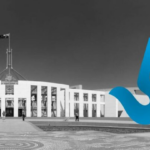Will I Be Granted Bail for Fraud in NSW?

If you have been arrested for any offence in NSW, you have the right to apply for bail as soon as possible.
If the police refuse to grant you bail at the police station you have been taken to on your arrest, you will be taken to the nearest court and be allowed to apply for bail before a magistrate.
The majority of criminal offences come with a presumption in favour of bail, which means that you are likely to be granted bail unless the prosecution can persuade the court that there are good reasons to refuse bail.
The offences that have a presumption against bail – meaning that bail won’t be granted unless there are compelling reasons to grant bail – include serious crimes such as murder, specific drug related offences, serious offences against the person such as some robbery offences and a number of offences under the customs act.
Some offences are considered ‘neutral’, which means that the decision about whether to grant bail will depend of which side – the prosecution or defence – presents their case the most persuasively.
All summary offences and those which are not punishable by a prison sentence have the ‘right’ to bail, which means that the police or court must grant you bail unless you have a previous history of not appearing at court, or you require personal care and protection.
Does the right to bail apply to fraud offences?
Fraud doesn’t come with the right to bail.
However, there is no presumption against bail for fraud offences, so you will be able to apply for bail. As long as there isn’t any specific reason why you should not be granted bail, you should be able to get bail for fraud in NSW.
Under what circumstances would I be refused bail?
- There are a number of different factors which will be taken into account by the police or the court when deciding whether or not to grant bail. These include:
- The nature of the offence. Certain offences such as drug trafficking and customs offences, as well as some violent or sexual offences, come with a presumption against bail and you could be refused if you have been charged with one of these offences.
- Your history. If you have previously failed to turn up for a court appearance after being granted bail, it is less likely that a magistrate or police officer will approve your application for bail.
- If you have a previous history of violent offences, harassment or stalking, the court may decide that it is not in the best interests of the community to grant bail.
- Whether it is in your best interests to be released on bail. If it is believed that you need ongoing supervision and care for your own safety or security, this can lead to a refusal of bail.
If you believe you have been refused bail unfairly for a fraud offence it is a good idea to speak to a lawyer who is experienced in making bail applications as soon as possible.
A top bail lawyer will give you or your loved-one the best chance of getting bail.
In some circumstances you can apply to the supreme court if bail has been refused in the local court, or ask for a review of the decision to refuse bail.
Receive all of our articles weekly
Author






